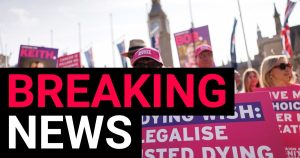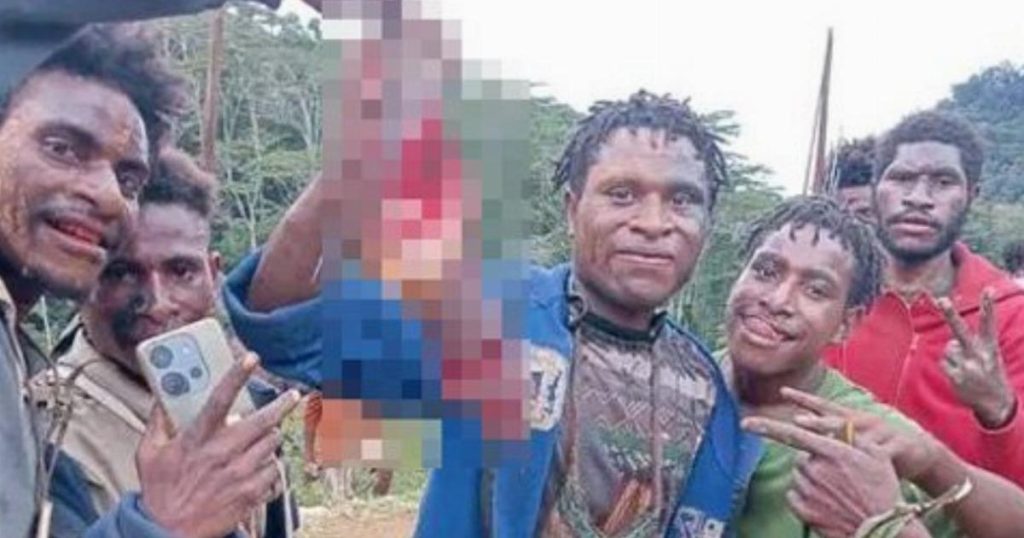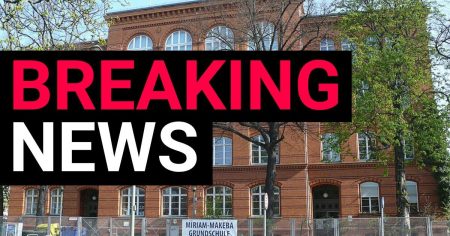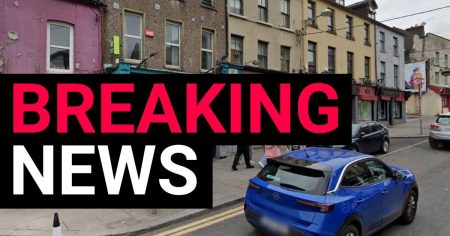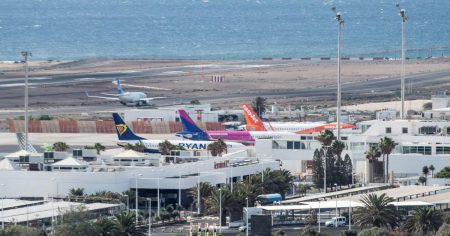The Resurfacing of "Cannibal Mafia" Videos Shakes Papua New Guinea
Papua New Guinea, a nation grappling with complex social and cultural challenges, has been thrust into the international spotlight following the emergence of disturbing videos depicting acts of extreme violence, including cannibalism. The graphic content, disseminated through social media and highlighted by the nation’s leading newspaper, the Papua New Guinea Post-Courier, showcases a gang brandishing machetes and displaying severed human remains. One particularly disturbing image captures the group holding aloft a severed human foot, posing for the camera with a chilling disregard for human life. Another video, circulating online for approximately a month, features men armed with bows and arrows exhibiting similar gruesome trophies of violence. These images have sparked outrage and condemnation, prompting urgent calls for action from authorities and raising concerns about the fragile state of law and order in the affected region.
Papua New Guinea’s Police Minister, Peter Tsiamalili, has publicly addressed the horrific incidents, linking the violence to a escalating feud between two brothers. The initial conflict, according to Tsiamalili, spiralled into a broader clash involving villagers taking sides, ultimately culminating in the brutal murder of the elder brother by his younger sibling. The subsequent acts of cannibalism, as depicted in the disturbing videos, appear to be a consequence of this escalating violence. Tsiamalili has vehemently condemned these barbaric acts, emphasizing that they do not represent the values and identity of the nation. He stressed the need to uphold shared humanity and address the underlying issues driving such extreme violence. His statements underscore the government’s commitment to combating such practices and preserving the nation’s image on the global stage.
The geographical epicenter of these disturbing events has been identified as the Goilala district, a remote and jungle-clad region of Papua New Guinea. Authorities are reportedly preparing to deploy personnel to the area to investigate the recent killings, including seven additional murders that occurred over the weekend. Reports suggest that local individuals openly admitted to intending to consume the remains of their victims, further solidifying the link to cannibalism. This chilling declaration echoes the historical association of such practices with certain tribes in the region, a connection that the government has long sought to downplay. The incident reignites a sensitive and complex issue, challenging the narrative of progress and modernization that Papua New Guinea strives to project.
The recent events in Papua New Guinea have rekindled memories of a controversial claim made by former US President Joe Biden concerning the fate of his uncle, who went missing during World War II. Biden speculated that his uncle might have been a victim of cannibalism in the region, a statement that drew criticism and highlighted the persistence of such narratives in popular imagination. While cannibalism is officially considered a rare and largely historical practice confined to isolated communities, the emergence of these videos raises questions about the extent to which such traditions persist and the factors that contribute to their resurgence. The incident underscores the challenges faced by the government in combating such practices and promoting a more peaceful and just society.
The surfacing of these videos brings to light the complex interplay of cultural traditions, socio-economic factors, and law enforcement challenges in Papua New Guinea. The Goilala district, like many remote regions of the country, faces significant hurdles in accessing essential services, including education, healthcare, and effective policing. Limited access to education can perpetuate traditional beliefs and practices, while the absence of robust law enforcement creates a vacuum in which violence can thrive unchecked. Poverty and lack of economic opportunity further exacerbate these challenges, increasing the likelihood of conflict and exacerbating existing social tensions. Addressing these underlying issues is crucial to breaking the cycle of violence and preventing further atrocities.
The Papua New Guinea government faces a daunting task in responding to this crisis. The immediate priority is to bring the perpetrators of these horrific acts to justice and ensure the safety and security of the communities affected by the violence. Beyond immediate law enforcement measures, the government must address the root causes that contribute to such extreme behaviors. This requires a multi-pronged approach that includes strengthening educational initiatives, improving access to healthcare and other essential services, and fostering economic development in marginalized communities. Promoting inter-communal dialogue and reconciliation is also essential to healing the wounds caused by the violence and preventing future conflicts. The international community can play a supportive role by providing technical assistance and resources to enhance the capacity of local authorities to address these complex challenges. The road to healing and reconciliation will be long and arduous, but it is a necessary journey to ensure a future free from violence and fear for the people of Papua New Guinea.

